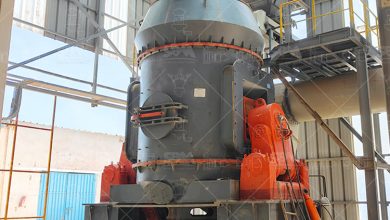Analysis of Development Status and Trends in Ground Calcium Carbonate Industry by GCC Production Line Equipment Suppliers
Introduction
The Ground Calcium Carbonate (GCC) industry has witnessed significant growth over the past decade, driven by increasing demand from sectors such as paper, plastics, paints, and construction. As a key player in the supply of GCC production line equipment, we have observed evolving trends towards higher efficiency, sustainability, and precision in grinding technology. This article analyzes the current development status and future trends in the GCC industry, with a focus on the role of advanced milling equipment.
Current Market Overview
The global GCC market is projected to continue its expansion, with Asia-Pacific leading in production and consumption due to rapid industrialization. Equipment suppliers are increasingly focusing on innovations that enhance productivity while reducing environmental impact. Key challenges include energy consumption, particle size distribution control, and operational costs.
Technological Advancements in GCC Grinding Equipment
Modern GCC production relies heavily on advanced grinding mills capable of achieving fine and ultra-fine particle sizes with high efficiency. Equipment must handle varying feed sizes and produce consistent output to meet industry standards. Innovations such as intelligent control systems, improved wear resistance, and eco-friendly designs are becoming standard.
Ultra-Fine Grinding Solutions
For applications requiring ultra-fine GCC (e.g., below 5μm), specialized mills are essential. Our SCM Ultrafine Mill is designed to meet these demands, offering output fineness of 325-2500 mesh (D97 ≤5μm) with capacities ranging from 0.5 to 25 tons per hour. Its vertical turbine classifier ensures precise particle size distribution, while energy-saving features reduce operational costs by 30% compared to traditional jet mills.

The mill’s durable construction, including wear-resistant rollers and rings, extends service life and minimizes maintenance. Additionally, its low-noise design (≤75dB) and pulse dust collection system align with environmental regulations, making it an ideal choice for sustainable GCC production.
Versatile Grinding for Broader Applications
For coarser GCC requirements (30-325 mesh), the MTW Series Trapezium Mill provides robust performance with capacities up to 45 tons per hour. Its curved air channel and combined shovel blades enhance grinding efficiency and reduce wear. The mill’s integral transmission with bevel gears achieves 98% efficiency, saving space and installation costs.

This equipment is particularly suitable for large-scale GCC production lines, offering reliability and adaptability to various raw material conditions. The anti-abrasion design and reduced maintenance needs contribute to lower total cost of ownership.
Industry Trends Shaping GCC Production
Several trends are influencing the future of GCC production: (1) Sustainability: Equipment with lower energy consumption and reduced emissions is prioritized. (2) Automation: Smart controls and IoT integration enable real-time monitoring and optimization. (3) Customization: Mills capable of handling diverse materials and output specifications are in demand.
Case Study: Implementing Advanced Mills in GCC Lines
A recent project involved integrating our SCM Ultrafine Mill into a GCC plant for paper coating. The result was a 40% increase in production efficiency and a significant reduction in energy use, demonstrating the impact of modern equipment on operational performance.

Conclusion
The GCC industry is evolving towards more efficient and environmentally responsible production methods. Equipment suppliers play a crucial role by offering innovative solutions like the SCM Ultrafine Mill and MTW Series Trapezium Mill, which address key challenges in particle size control, energy efficiency, and sustainability. As demand for high-quality GCC grows, investing in advanced technology will be essential for maintaining competitiveness.





